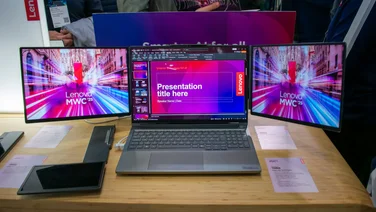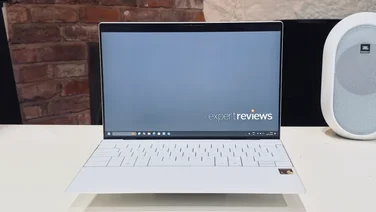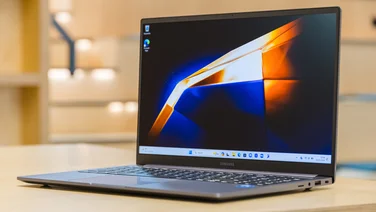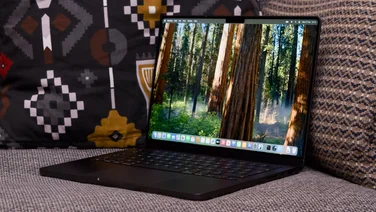To help us provide you with free impartial advice, we may earn a commission if you buy through links on our site. Learn more




Dell’s revitalised XPS laptops are a far cry from the bulky gaming monsters that carried the brand a few years ago – the latest design eschews colourful LEDs and black plastic for sleek lines and brushed aluminium, which gives the XPS 14z a stylish appearance worthy of its £850 price.
Deceptively, the 14z doesn’t use the traditional 14in laptop form factor – Dell has cleverly squeezed a 14in display into a 13.3in chassis, making it incredibly portable without sacrificing screen space. It’s not as thin or light as the new wave of Ultrabooks that are starting to appear, but the 14z squeezes a lot more high performance hardware inside its metal chassis.

Powered by an Intel Core i5-2430M processor and paired with 6GB of RAM, our review sample might have been the entry level model in the range, but it still packed plenty of power thanks to Intel’s Turbo Boost technology – the i5-2430M normally runs at 2.4GHz, but can reach 3GHz when needed. This helped the XPS 14z achieve a respectable 50 in our multimedia benchmarks, which isn’t far from the 61 scored by its bigger brother. Although it can be upgraded with a super-fast SSD, the version we tested used a traditional 500GB hard disk.
Graphics performance was also excellent for such a small laptop, thanks to Nvidia’s GeForce 520M dedicated chipset. It could easily handle high definition video, either at 720p on the laptop or 1080p on an external display using the HDMI or DisplayPort outputs, but it also managed playable frame rates in our Dirt3 test – 24.1 is just below the minimum 30 we deem playable, but once we disabled anti-aliasing we could play smoothly at 720p.

With Nvidia’s Optimus graphics switching, the dedicated card doesn’t impact heavily on battery life – the 14z managed an impressive six hours 15 minutes our light usage test, which means you should be able to last most of a working day if you’re just doing light tasks such as word processing or web browsing. Its power brick isn’t the lightest, but you’ll still be able to carry it along with the laptop and not notice it too much in your bag.
In everyday use, the 14z was incredibly comfortable to type on thanks to a spacious backlit QWERTY keyboard. In bright light, we preferred to keep the backlight switched off, as the combination of grey keys and white LEDs made it difficult to read, but in a dark room they worked incredibly well. The keys themselves are mostly full-size and sensibly spaced apart from one another. There’s enough spring in each key that we could type for long periods without getting uncomfortable, and although there isn’t a separate numerical keypad, we didn’t find it a major issue.
The touchpad directly below the keyboard is nice and big, with a metallic texture that creates minimal friction. It supports all the usual multi-touch gestures, which were recognised quickly in Windows and rarely activated accidentally. The buttons directly below it are also oversized, letting us find them easily in the dark. They produce audible clicks when pressed, so we were always sure if a click had been registered.
Even with a full-size keyboard, Dell has still managed to squeeze in a speaker at either side – they produced reasonably loud audio, enough to avoid having to reach for headphones when watching YouTube videos or streaming catch-up TV, but for watching films or listening to music you’ll probably want to use some external speakers. Despite a clear mid-range and surprisingly crisp high-end notes, there was a definite lack of bass compared to the excellent 15z.
We always expect good things from Dell’s laptop displays, and the XPS 14z delivered – the excellent WLED panel once again helped images look incredibly bright and vivid, with accurate colours and excellent contrast. Viewing angles were only average, however – there’s enough screen tilt that you should still be able to find the right angle to suit your preferred working position, but the glossy screen finish still makes light reflections and working in direct sunlight rather difficult. It’s also a shame that the 14in display has a relatively small 1,366×768 resolution, as we’ve seen 13in laptops with higher resolution screens – however, without a noticeable screen bezel, it’s a larger display than we’re used to in a laptop of this size.

The 14z has a reasonable number of connectivity options, including two USB ports, gigabit Ethernet, headphone and microphone inputs and a multi-format card reader, as well as a slot-loading optical drive. In order to avoid the cramped feel of the XPS 15z, most of the ports have been moved to the back of the chassis – this is great if you plan on leaving the 14z chained to a desk, as you’ll be able to hide most cables out of sight. Even so, we would have preferred both USB ports to support the faster USB3 standard, rather than the one Dell has included here.

It’s impossible to look at the XPS 14z and not see the influence of the Apple MacBook Pro 13in – the metallic chassis, slot-loading optical drive, backlit keyboard and speaker grilles at either side of the keyboard tray are all reminiscent of Apple’s high-end design, but Dell has still managed to make the 14z stand out on its own merits. Fitting a 14in display into a 13in chassis, even one with a relatively low resolution, makes a massive difference in everyday use. There’s enough power for almost every task, including gaming, but this doesn’t come at the cost of battery life. It’s also cheaper than the equivalent MacBook – with an RRP of £800 for the base model, you’ll save almost £200 by choosing the Dell over Apple.
No, it’s not quite as well made or desirable as an Apple, but the XPS 14z still one of the best portable machines we’ve seen. If you’re looking for something to take on the move, but want more power than an Ultrabook can provide, this should definitely be high on your list.






